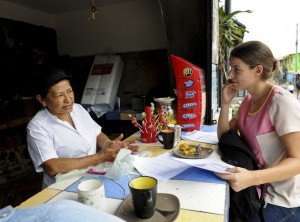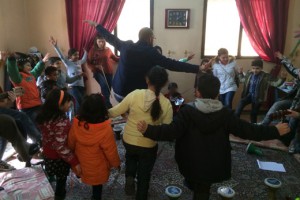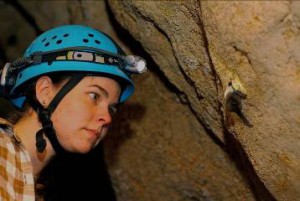
Jenna Harvey, 2013-2014, Costa Rica, conducts an interview with a small business owner in the informal settlement of La Carpio; Photo credit: Perfil Magazine, 2014
Costa Rica’s central valley is surrounded by stoic cloud-capped mountains and teeming with life—70% of the country’s population to be exact—working, studying and raising families in the sprawling metropolis of San José and its surrounding areas. One of the best views of the buzzing valley is from La Carpio, an informal settlement perched atop the entrance to the country’s largest trash dump and enclosed on the sides by a water-treatment plant and a quarry. La Carpio’s favorable view is just one of many unexpected features of this fascinating community, home to over 20,000 people, about half of whom are immigrants from neighboring Nicaragua.
As a Fulbrighter in La Carpio, my research was focused on the spectrum of informal economic exchanges taking place there: from street vendors peddling their goods on corners to successful micro-entrepreneurs selling products and services from storefronts. I specifically focused on the participation of women in the informal economy of La Carpio and how their efforts have contributed to the economic development of a place that began as a squatter settlement in an abandoned coffee field.
My research objectives were two-fold: gain a better understanding of “urban informality” by identifying both success factors and limiting factors for informal workers, and uncover ways that small-business creation and entrepreneurialism could create a much needed bridge between the migrant women of La Carpio and the Costa Rican women of San José. To accomplish my second objective, I collaborated with a women’s microfinance organization in San José, to foster dialogue about the potential for services to be extended to migrant women living in marginalized areas like La Carpio.



